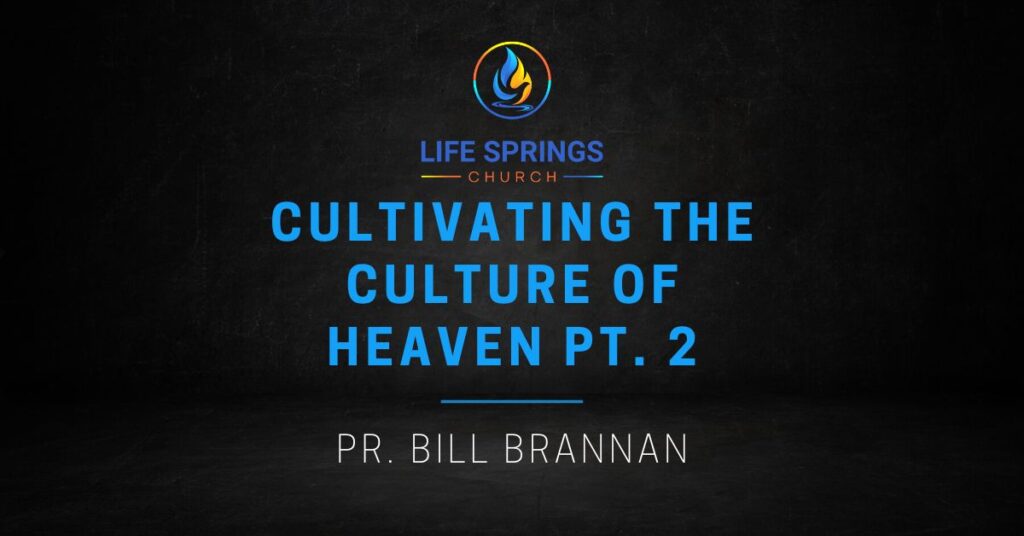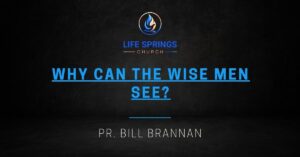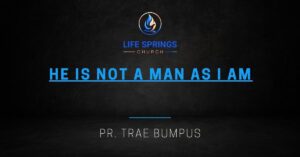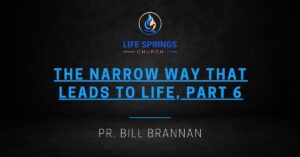Cultivating the Culture of Heaven: Transforming Lives Through the Gospel

The message of cultivating the culture of Heaven is one that resonates deeply with many. It’s about understanding that the world we live in is not what it was meant to be, a sentiment echoed in the hearts of those who experience injustice, brokenness, and suffering. The gospel offers a powerful remedy, promising that the kingdom of God is not just a distant hope but a present reality that can be experienced here and now. This blog explores how the gospel transforms lives and cultures, drawing on biblical examples and personal experiences.
Paradise Lost and Restored
In discussing the concept of Paradise, we recognize it as a representation of the world as it was intended to be. Many of us have moments where we can clearly see that something is amiss in our surroundings, leading us to cry out that things are not meant to be this way. The gospel, however, offers a message of restoration. It teaches that the kingdom of God is at hand, and through belief and repentance, we can experience a taste of this paradise in our lives today.
When we talk about the kingdom of God, we refer to the transformative power of Jesus Christ in our lives. The gospel is not merely about the afterlife; it is about knowing God and becoming like Christ in our everyday existence. Scriptural language likens this experience to finding a hidden treasure or a pearl of great price—something so valuable that all else pales in comparison.

Photo by D A V I D S O N L U N A on Unsplash
The Power of Prayer and Expectation
A key aspect of cultivating the culture of Heaven is the power of prayer. In the book of Acts, we see the church praying fervently for Peter’s release from prison. Their expectations were low, as evidenced by their disbelief when Peter shows up at their door. This story illustrates how our expectations can diminish over time due to life’s trials and tribulations. Yet, despite their doubts, God answered their prayers, highlighting the immense power of faith.
We are reminded that God’s presence can manifest in extraordinary ways—sometimes even through the mere act of walking. Just as Peter’s shadow healed the sick, we too can be conduits of God’s healing and transformative power in our communities. This calls us to reflect on our own expectations: Are we limiting what God can do in our lives and the lives of others?
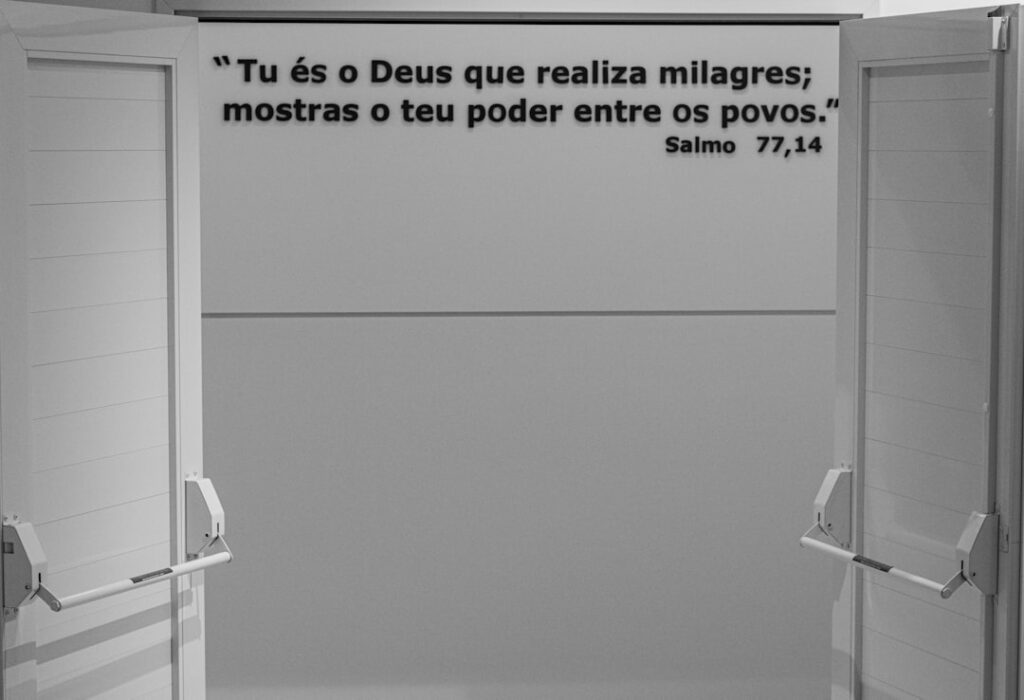
Photo by Mateus Campos Felipe on Unsplash
Transforming Cultures Through the Gospel
The next question we must grapple with is how much transformation through the gospel is actually possible. Can the gospel truly change the world, moving it from a state of despair to one of hope and joy? The answer is a resounding yes. The gospel is not just about individual salvation; it has the power to change entire cultures. This is evident in the story of Ernest Gordon, a prisoner in a World War II Japanese prison camp. Despite the horrific conditions, the gospel’s transformative power was evident among the prisoners.
Gordon recounts how, amidst despair, a few prisoners began to exhibit Christ-like behavior, sharing food and caring for one another. This act of selflessness sparked a cultural shift within the camp, leading to a newfound sense of humanity and purpose among the prisoners. They formed a library, held concerts, and began to treat each other with dignity and respect, all because the gospel had taken root in their hearts.

Photo by Joshua Sukoff on Unsplash
The Messianic Age and Its Implications
When discussing the expectations of what the gospel can achieve, we must consider the Messianic age. This is the period when the Messiah reigns, which, according to Christian belief, began with the coming of Jesus Christ. Biblical prophecies, such as those found in Isaiah, speak of a time when the world will be transformed, and suffering will cease. These promises are not just for the afterlife; they speak to the potential for change in our current reality.
As believers, we must ask ourselves: What does it mean to live in the light of these promises? Are we actively participating in the transformation of our communities, or are we merely waiting for future fulfillment? When we embrace the fullness of the gospel, we are empowered to bring about change in our world today.

Overcoming Cultural Challenges
Despite the hope the gospel offers, we live in a world filled with challenges and obstacles. Many people experience daily struggles that feel insurmountable. However, the story of the prisoners in the camp illustrates that true liberation begins within the heart. The gospel invites us to see things differently, to repent, and to embrace a new mindset that aligns with God’s kingdom.
As we cultivate this culture, we must be aware of the “plausibility structures” that shape our understanding of what is possible through the gospel. In many cultures, the idea of a living God who can transform lives may seem implausible. It is our responsibility to challenge these notions, demonstrating through our lives and actions that the gospel is indeed powerful and transformative.

Photo by Suzanne D. Williams on Unsplash
Living Out the Gospel: Practical Steps
To cultivate the culture of Heaven, we must actively engage in practices that reflect the heart of the gospel. Here are some practical steps we can take:
- Prayer: Commit to regular prayer for yourself, your community, and the world. Expect God to move in powerful ways.
- Acts of Kindness: Perform acts of kindness that reflect Christ’s love. This can be as simple as helping a neighbor or volunteering in your community.
- Share the Gospel: Look for opportunities to share the good news of Jesus with those around you. This could be through conversations, social media, or community events.
- Community Engagement: Get involved in local initiatives that promote justice, mercy, and love. Be a voice for the voiceless.
- Personal Transformation: Allow the Holy Spirit to work in your heart, transforming you into a more loving and compassionate person.

Photo by Priscilla Du Preez 🇨🇦 on Unsplash
The Call to Action
As we reflect on the culture of Heaven and the transformative power of the gospel, we are called to action. We must not only believe in the gospel’s potential but also actively participate in bringing about its reality. The stories from scripture serve as reminders of what is possible when we align ourselves with God’s kingdom.
Let us dare to believe that through the gospel, we can see lives transformed, cultures changed, and hope restored. In doing so, we cultivate a culture of Heaven here on Earth, fulfilling the call of Christ to be His hands and feet in a broken world.
Cultivating the Culture of Heaven Pt. 2
(Preaching Outline)
- Last week we began talking about cultivating the culture of heaven.
- We discussed the paradise lost and restored through the gospel.
- The great commission is the mandate to transform the world to reflect heaven – the true messianic movement to deliver from bondage and meet the cries of men!
- Two ideas we need to explore are:
- What is a biblical based expectation for how much we can expect the gospel to transform the world?
- How do we actually transform the world?
- Before we get into scripture, I want to read a story from Understanding the Culture by Jeff Meyers
- A biblical expectation concerning the transforming power of the gospel.
- Isaiah 65:17–25 (NKJV) — 17 “For behold, I create new heavens and a new earth; And the former shall not be remembered or come to mind. 18 But be glad and rejoice forever in what I create; For behold, I create Jerusalem as a rejoicing, And her people a joy. 19 I will rejoice in Jerusalem, And joy in My people; The voice of weeping shall no longer be heard in her, Nor the voice of crying. 20 “No more shall an infant from there live but a few days, Nor an old man who has not fulfilled his days; For the child shall die one hundred years old, But the sinner being one hundred years old shall be accursed. 21 They shall build houses and inhabit them; They shall plant vineyards and eat their fruit. 22 They shall not build and another inhabit; They shall not plant and another eat; For as the days of a tree, so shall be the days of My people, And My elect shall long enjoy the work of their hands. 23 They shall not labor in vain, Nor bring forth children for trouble; For they shall be the descendants of the blessed of the Lord, And their offspring with them. 24 “It shall come to pass That before they call, I will answer; And while they are still speaking, I will hear. 25 The wolf and the lamb shall feed together, The lion shall eat straw like the ox, And dust shall be the serpent’s food. They shall not hurt nor destroy in all My holy mountain,” Says the Lord.
- The plausibility structure of culture – and why we keep revisiting ideas until we develop a strong belief – these ideas are the opposite of what is normally accepted in the church today.
- Who, then, is it that has done this, or who is he that has united in peace those who hated each other, if not the beloved Son of the Father, the common Savior of all, Jesus Christ, who in his love submitted to all things for our salvation? For even from of old it had been prophesied concerning the peace ushered in by him, the scriptures saying, “They will beat their swords into plowshares and their spears into sickles, and nation shall not lift up sword against nation, neither will they learn any more to wage war” (Isa 2.4). And such a thing is not unbelievable, inasmuch as even now the barbarians who have an innate savagery of manners, while they still sacrifice to their idols, rage against one another and cannot bear to remain without a sword for a single hour, but when they hear the teaching of Christ they immediately turn to farming instead of war, and instead of arming their hands with swords stretch them out in prayer, and, in a word, instead of fighting amongst themselves, henceforth they arm themselves against the devil and the demons, subduing them with sobriety and virtue of soul.[1]
- Until we develop a strong belief in the transforming power of the gospel we will never storm the gates of hell and turn the world upside down.
- How the gospel transforms culture
- Matthew 13:31–32 (NKJV) — 31 Another parable He put forth to them, saying: “The kingdom of heaven is like a mustard seed, which a man took and sowed in his field, 32 which indeed is the least of all the seeds; but when it is grown it is greater than the herbs and becomes a tree, so that the birds of the air come and nest in its branches.”
- Matthew 13:33 (NKJV) — 33 Another parable He spoke to them: “The kingdom of heaven is like leaven, which a woman took and hid in three measures of meal till it was all leavened.”
- Matthew 13:24–25 (NKJV) — 24 Another parable He put forth to them, saying: “The kingdom of heaven is like a man who sowed good seed in his field; 25 but while men slept, his enemy came and sowed tares among the wheat and went his way.
- The wheat are the sons of the kingdom – we are seed sown to transform the world.
- Transform the church, transform the world.
- Transform lives, transform the church.
- How we are transformed
- Romans 12:2 (NKJV) — 2 And do not be conformed to this world, but be transformed by the renewing of your mind, that you may prove what is that good and acceptable and perfect will of God.
- Romans 8:2–6 (NKJV) — 2 For the law of the Spirit of life in Christ Jesus has made me free from the law of sin and death. 3 For what the law could not do in that it was weak through the flesh, God did by sending His own Son in the likeness of sinful flesh, on account of sin: He condemned sin in the flesh, 4 that the righteous requirement of the law might be fulfilled in us who do not walk according to the flesh but according to the Spirit. 5 For those who live according to the flesh set their minds on the things of the flesh, but those who live according to the Spirit, the things of the Spirit. 6 For to be carnally minded is death, but to be spiritually minded is life and peace.
- Cultivating the culture of heaven
- Developing a biblical worldview – comprehensive in scope.
- See the king – become what we behold.
- See the kingdom – expectant faith and strong belief.
- Studying scripture
- Minding the Spirit and not the flesh
- The Holy Spirit
- The law of the spirit of life in Christ Jesus has set me free from the law of sin and death
- In Romans the law came and defined and then the Spirit came and empowered – power from on high
- Learning how to cultivate the Holy Spirit
- Thanksgiving
- Peace and joy
- Forgiveness
- Love
- Prayer, worship and adoration – but must cultivate life.
- The seeds that cultivate the culture of heaven on earth are those who are becoming like Jesus!
- We are the garden He plants in the world when it is not about getting us to heaven but about reproducing the life of Christ in us.
- Developing a biblical worldview – comprehensive in scope.
Ernest Gordon’s To End All Wars is a moving example of how Christians can shape culture even amid unimaginable circumstances. Gordon was a prisoner in one of the cruelest places on Earth: a squalid and terrifying World War II Japanese prison camp called Chungkai. Chungkai was filthy, disease ridden, and inhumane. Prisoners frequently died from starvation, disease, overwork, beatings, shootings, beheadings, or hopelessness. One man, Dusty, was mockingly hung on a tree to die like the Savior he professed. Deprived of their humanity, the prisoners adopted a beastly survival-of-the-fittest mind-set. Death meant nothing, and life meant little more. Gordon, a member of the elite Scottish Highlanders, described it this way: “Death called to us from every direction. It was in the air we breathed, the food we ate, the things we talked about. The rhythm of death obsessed us with its beat—a beat so regular, so pervasive, so inescapable that it made Chungkai a place of shadows in the dark valley.”
But two events, according to Gordon, changed everything. First, word spread of a prisoner who, in the name of Christ, offered his own food and stayed by the side of his bunkmate to nurse him back from the brink of death. His bunkmate survived, but he did not. In the second incident, a guard threatened to randomly execute the prisoners serving a work detail until someone confessed to stealing a missing shovel. A Christian stepped forward and confessed, saving the lives of the others. The enraged guard beat the man, crushing his skull. The others watched in horror, helpless to assist the man who had given his life for theirs. A later recount showed no shovels missing. From a purely pragmatic viewpoint, these deaths were a foolish waste. But in the camp, they led to a new attitude of “You first” rather than “Me first.” Christian volunteers changed gangrenous bandages and bathed hideous wounds. Life regained some of its meaning. Even the experience of death changed as prisoners stopped piling bodies, instead electing chaplains to conduct honorable funerals for the fallen.
Out of this restored humanity grew a stunning culture. The prisoners formed a library and taught courses in everything from math to philosophy to languages (nine of them). They staged plays. Having retrieved six violins from a vandalized relief shipment, they formed an orchestra and held concerts. The overall camp conditions hadn’t changed. Frightful diseases still claimed lives. Food was still scarce and nauseating. But the culture had changed. Sacrifice had brought meaning out of misery. Gordon wrote, Death was still with us—no doubt about that. But we were slowly being freed from its destructive grip. We were seeing for ourselves the sharp contrast between the forces that made for life and those that made for death. Selfishness, hatred, envy, jealousy, greed, self-indulgence, laziness and pride were all anti-life. Love, heroism, self-sacrifice, sympathy, mercy, integrity and creative faith, on the other hand, were the essence of life, turning mere existence into living in its truest sense. These were the gifts of God to men.
What Gordon described was culture. He and a handful of others refused to accept the environment that had been forced on them. Despite their horrifying conditions, they were able to shape something beautiful. Along the way, they transformed a place of hatred, cowardice, and greed into a place of love, heroism, and self-sacrifice.[2]
[1] Athanasius, Saint, Patriarch of Alexandria. On the Incarnation: Saint Athanasius (Popular Patristics Series Book 44) (p. 108). St Vladimir’s Seminary Press. Kindle Edition.
[2] Myers, Jeff. Understanding the Culture: A Survey of Social Engagement . David C Cook. Kindle Edition.

